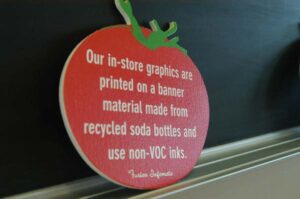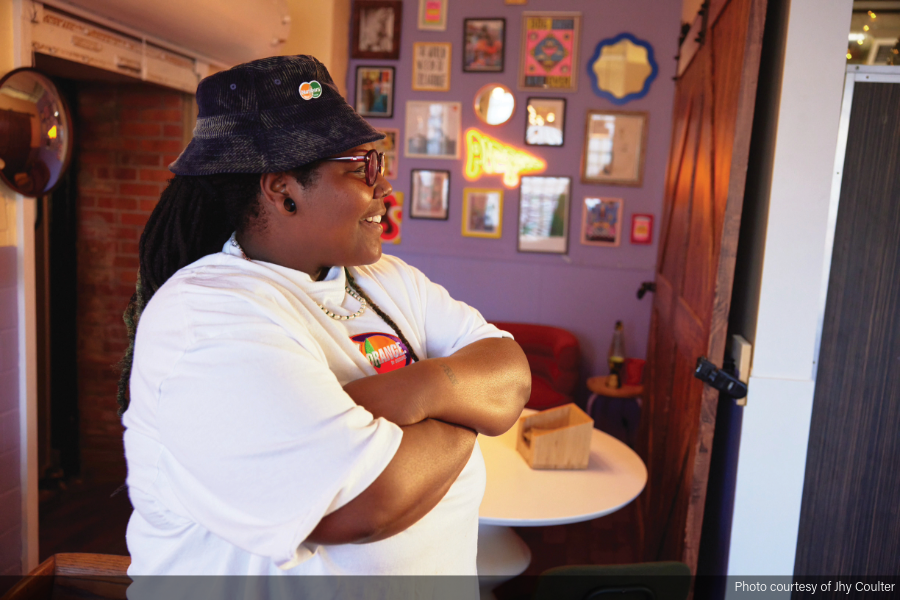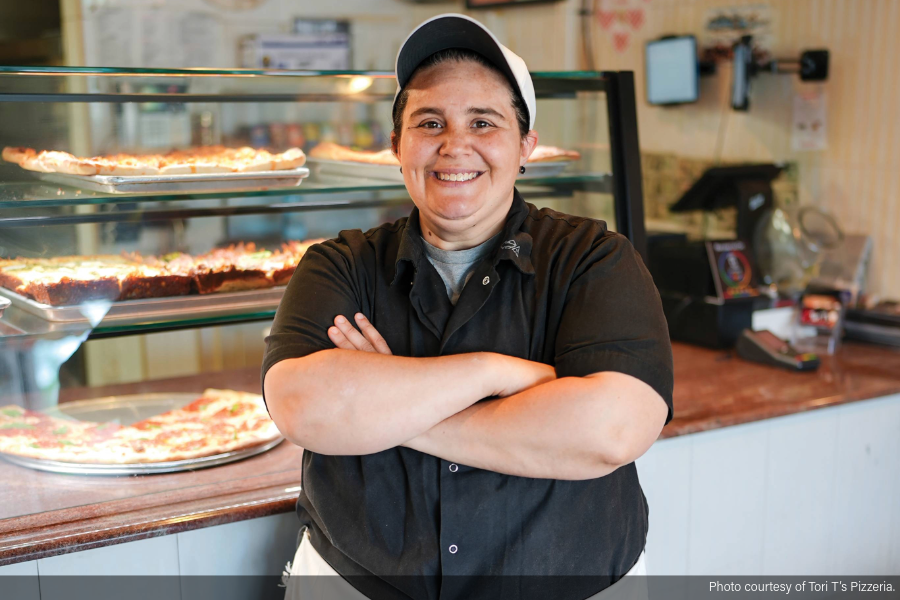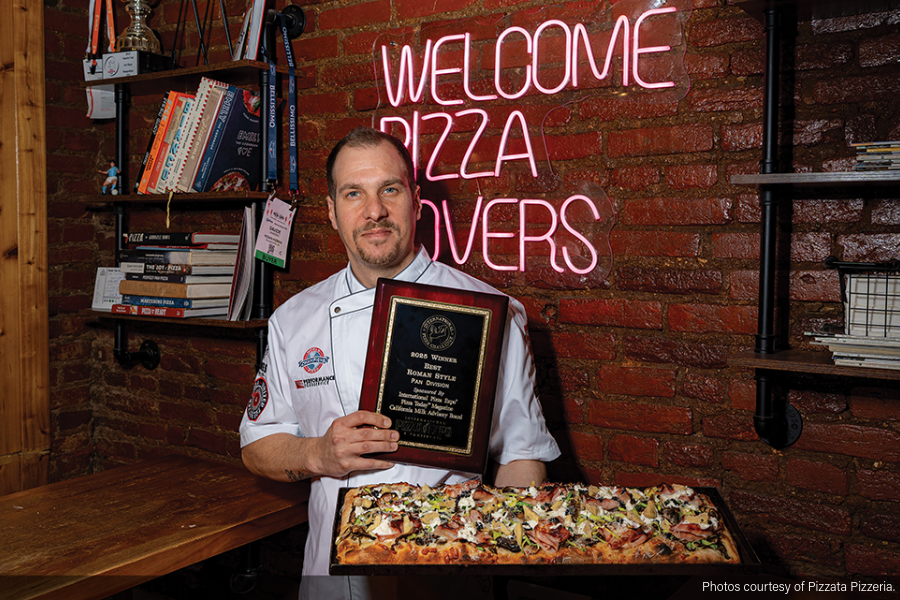If you’ve resisted going green because of cost-conscious concerns, you may be missing out on major savings
Going green: Sure, it’s a catchy term…and maybe it’s even a little bit of a cliché at this point. But it’s a mistake to ignore the idea behind the phrase. For pizzeria proprietors, it’s time to put away the idea that environmental consciousness is just a fad. And while you’re at it, trash any misconceptions about sustainable choices being cost-prohibitive, too. The truth is that greening your restaurant can positively impact the environment and your bottom line. Let’s take a look:
• Recycling. Many municipalities have recycling programs that can actually be a boon to your bottom line. “I know of restaurants that have saved thousands of dollars a year just by implementing recycling programs,” explains
Michael Oshman, CEO and founder of the Green Restaurant Association, a Boston-based company that encourages environmentally conscious restaurant operations.
This is because the most commonly accepted recycling materials, like glass, aluminum, plastic, paper and cardboard, make up much of a restaurant’s trash. Instead of just paying to have it disposed of, however, recycling programs allow waste haulers to resell the recyclable materials. Because this is more profitable for waste disposal companies, they can charge less for their services.
• Food waste. Another major contributor to restaurant waste stores, of course, is uneaten food. More and more cities are addressing the needs of restaurants by implementing composting waste-hauling options. Some markets are even developing competitive composting markets, leading to significantly lower prices for removing food waste –– generally, restaurants simply have to separate out the compostable materials for disposal.
Another option for excess food product is donating it to non-profit groups. Obviously only certain food can be donated, but by working out agreements on food donation with local charity organizations, restaurants not only help the hungry, but they can also qualify for tax deductions. Not only is this a more cost-effective option than paying to have perfectly good food disposed of as waste, it is also a way to positively impact local communities.
Some areas even have companies that facilitate food donation. In the Chicago area, the restaurant Cicchetti teamed up with a company called Zero Percent to distribute excess food to charity organizations, says Sarah Grothaus, a communications specialist for Cicchetti. Zero Percent’s “web-based donation system links small restaurants to local shelters within minutes,” Grothaus explains, which offers food-safety benefits as well as a convenient method for efficiently distributing excess food. Other organizations, such as the Food Donation Connection (foodtodonate.org), offer information about the benefits of food donation and can facilitate food donation, as well.
• Cooking oil and grease. Some cities offer incentives to restaurants for recycling cooking oil and grease. Santa Monica, California, is one of these cities. Any restaurant in the city of Santa Monica can recycle fats, oil and grease free of charge. The city provides this service because it then can sell the fats and oils to companies that produce biodiesel.
Even if your municipality doesn’t offer an option for collection of oils and fats, you may be able to find area biofuel companies that will pick up your cooking oil and grease free of charge. Since you’re basically providing the raw materials for the company’s product, most biodiesel production businesses actively court restaurants, offering containers, regular pickup schedules and even “grease emergency” response options.
• Buying green. The one area where the idea that green can cost more may be in buying environmentally conscious products. But as demand for recycled restaurant products increases, the price decreases. It generally costs less to make greener choices now than ever.
 Since pizza boxes that have been used and have any residual food product or grease in them (basically any box that’s actually held a pizza) can’t be recycled with other cardboard and paper products, buying boxes with recycled material is the greenest choice you can make. But cardboard and paper products aren’t the only way to buy green.
Since pizza boxes that have been used and have any residual food product or grease in them (basically any box that’s actually held a pizza) can’t be recycled with other cardboard and paper products, buying boxes with recycled material is the greenest choice you can make. But cardboard and paper products aren’t the only way to buy green.
Choosing green cleaning products is healthier for the environment, your workers and your customers. Wiping tables down with harsh chemicals like bleach will get the job done, but can also irritate the skin and eyes of employees. Some customers may also have skin reactions to harsh chemicals used to clean surfaces. And put aside any doubts about the effectiveness of greener cleaning products: they can disinfect and sanitize as well as clean with the same efficacy — but less environmental and health impact — as harsher chemicals.
Whatever your motivation is for making greener choices — your personal interest in sustainability, bottom line savings, public relations, or anything else — there are more environmentally conscious restaurant operations options than ever before.
Becoming a Certified Green Restaurant
The Green Restaurant Association offers the Certified Green Restaurant seal to restaurants that meet its certification standards for sustainable operations. “We work with all sizes of restaurants and food service operations, from the neighborhood mom-and-pop to certifying Met Life Stadium, which is hosting this year’s Super Bowl,” says Michael Oshman, CEO and founder of the Green Restaurant Association.
If you’re interested in pursuing the Certified Green Restaurant designation, you won’t have to go it alone. The Green Restaurant Association reaches out to restaurants seeking certification to provide guidance and assistance. “We try to make it an easy process by helping assess operations and talking to distributors,” Oshman says. “We don’t mind holding their hand and helping them work toward becoming certified.”
The Green Restaurant Association also offers resources on their Web site (dinegreen.com) for any restaurant looking to green their operations, such as a list of companies the association has researched and vetted that provide environmentally-conscious products for restaurants.
Alyson McNutt English is an award-winning freelance writer specializing in home, health, family, and green topics. She is based in Huntsville, Alabama.







